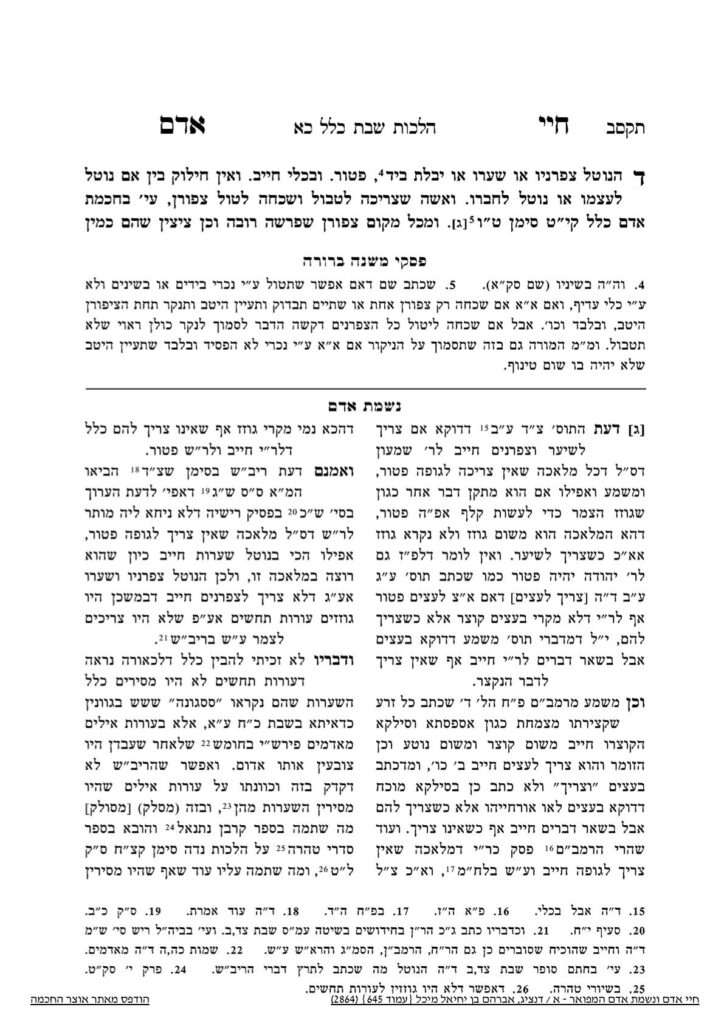We are continuing in siman 4, where the Chayei Adam is discussing a woman who needs to go to the mikvah and forgot to cut her fingernails.
The Chayei Adam discusses a different case and introduces a kulah that Chazal instituted due to the discomfort of having a partially detached fingernail or excess skin around the nails. He writes that if the majority of a fingernail has become detached, or if pieces of skin have become detached around the nail, and the person has pain from it, it is muttar to remove the nail with one’s hand. Using a kli would be assur mideoraysa, so using a kli would only be muttar in a case of danger. Using one’s hands is a shinui and only assur derabanan, and Chazal did not institute their issur in this case. It is important to note that this kulah only applies in the combination of the majority of the nail being detached–in which we say rubo kekulo–and where the person experiences tzaar from the nail.
Regarding strips of skin, the argument of rubo kekulo is hard to apply, since the rov of the skin would be the entire body. The Chayei Adam does not try to apply it, but instead writes that these strips of skin have to be detached kelapei maalah, in an upward direction. It is a machlokes rishonim how to understand these words. If one holds their hand upwards, klapei maalah would mean towards the tip of the finger, but if one holds their hand downwards, klaper maalah would mean towards the body. Therefore, the Chayei Adam writes that we are machmir against removing this skin due to the safeik. As we mentioned, if there were a sakanah, it would be muttar due to the sakanah, but as long as it is just a question of comfort, it is assur out of safeik.
Summary
It is muttar to remove a fingernail of which the majority is detached, and which is causing tzaar to the person. The nail should be removed by hand and not with a kli



